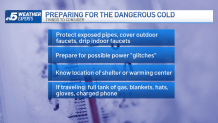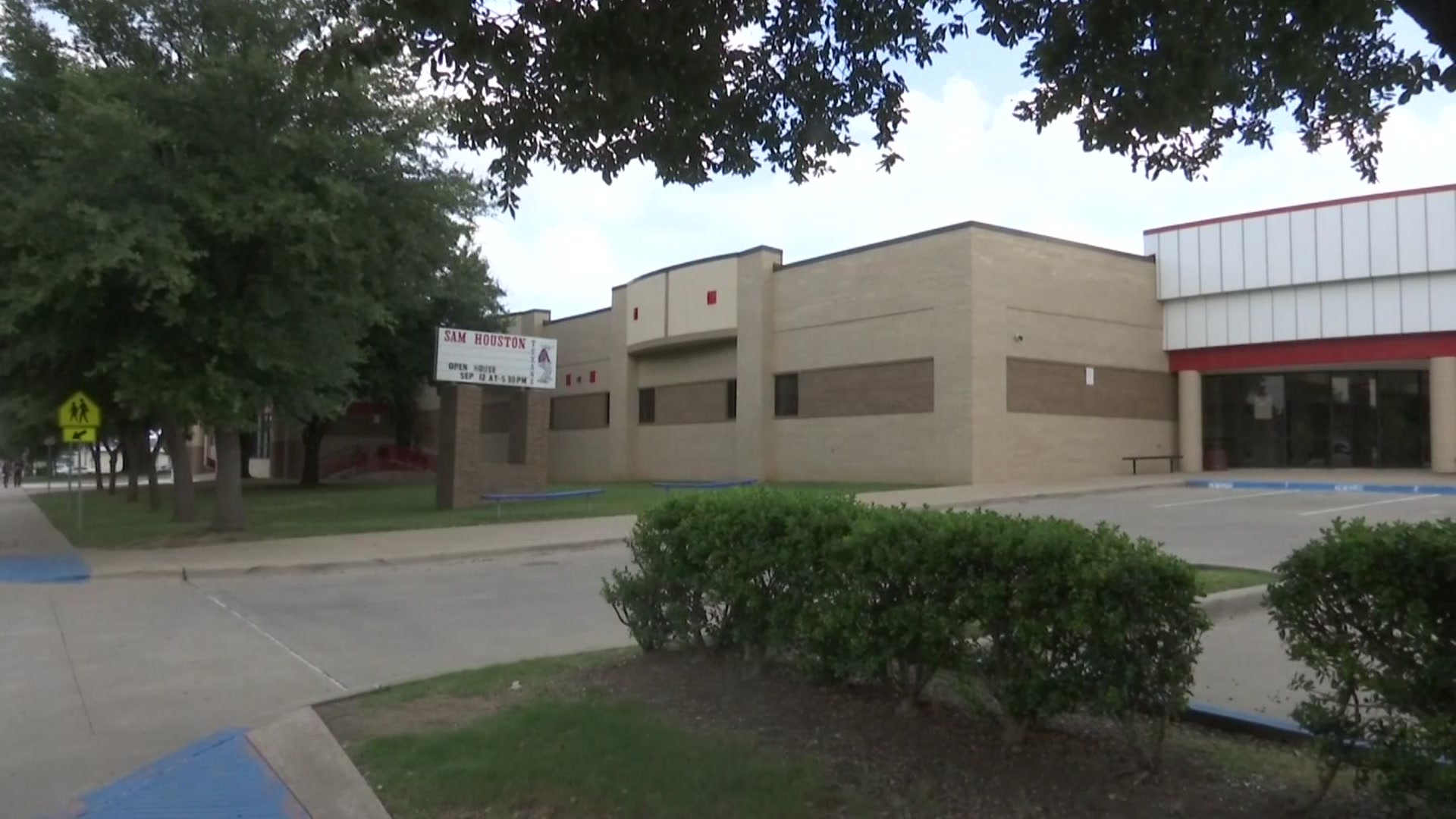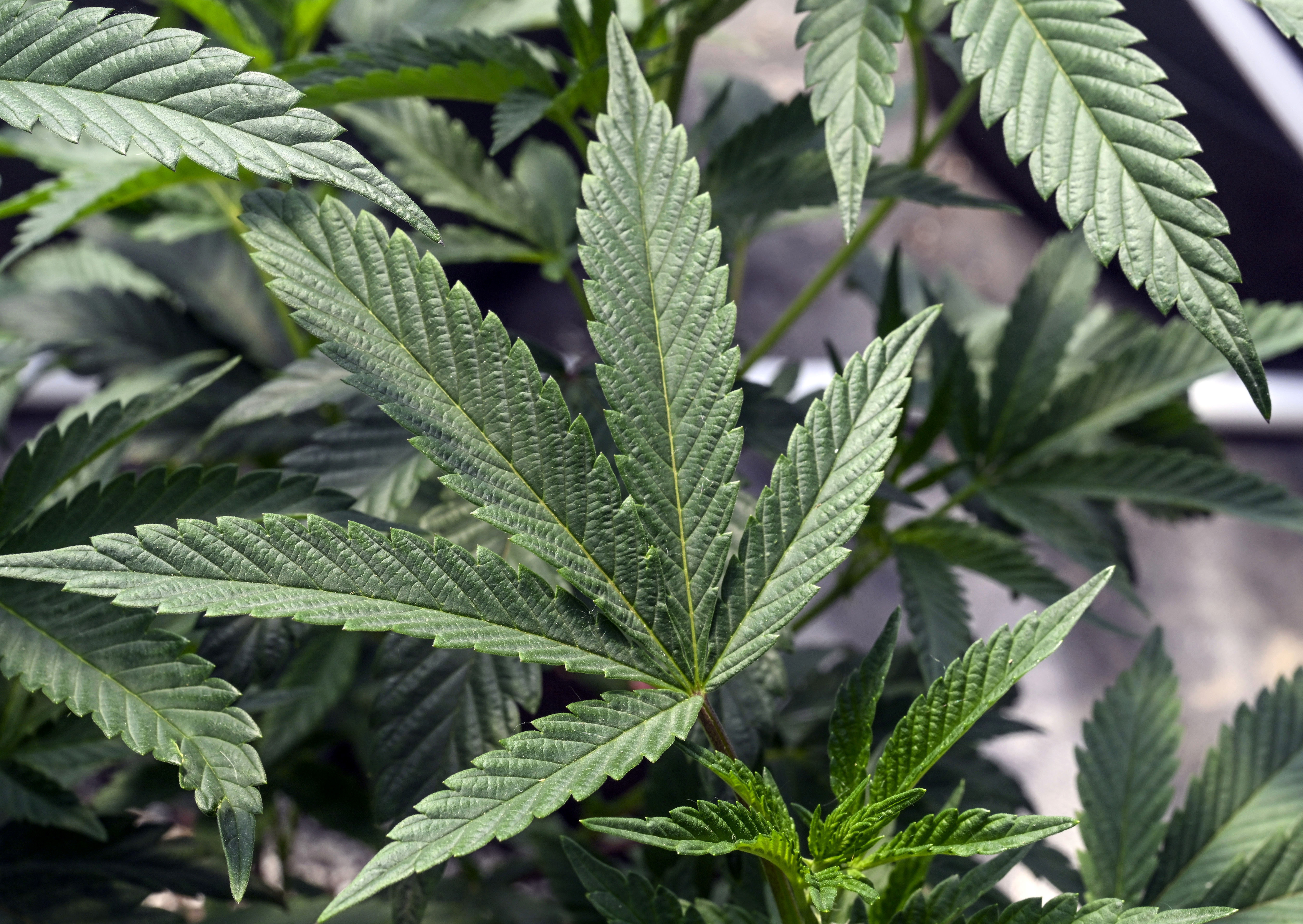It is a memory many would like to forget. Below-freezing temperatures in February of 2021 and a power grid that failed the state, plunging millions into darkness.
“I like to think in terms of probabilities and I would say, you know, 80% to 90% chance, maybe even higher than 90% that the grid will be fine,” said Doug Lewin, President of Stoic Energy.
Lewin says conditions can change, but added that this winter blast is much different from the one nearly two years ago.
“We are still looking at about 8 to 10 degrees warmer than February 2021 and that is obviously a huge difference as far as demand goes,” added Lewin.
Get DFW local news, weather forecasts and entertainment stories to your inbox. Sign up for NBC DFW newsletters.
The operator of the Texas power grid, The Electric Reliability Council of Texas, or ERCOT, says it is monitoring the weather situation and has notified utility and power plant owners that temperatures will be frigid in the state's most populated areas.
“Providing Texans with a reliable electric grid is our highest priority. As we monitor weather conditions, we want to assure Texans that the grid is resilient and reliable,” read a statement from Pablo Vegas, ERCOT president and CEO. “We will keep the public informed as weather conditions change throughout the coming week."
Local
The latest news from around North Texas.
University of Houston Energy Fellow Ed Hirs believes the changes the Texas Legislature made after the session in 2021 will help, but that there is more work to be done.
“The weatherization requirements that the power plants have had to go to undergo, that is going to help us a lot," Hirs explained. "This cold front is not supposed to be as bad as the polar vortex we had in February of 2021. It is not supposed to have a real impact on the renewable fleet, which would be the wind and solar as well."
Hirs added the measures taken by the natural gas suppliers to keep natural gas into the supply grid appear to be working but says we won’t know until the weather happens.
"We are aware of the forecasted weather event and are actively inspecting the weatherization preparedness of critical gas infrastructure on the electrical supply chain," said Andrew Keese, spokesman for the Railroad Commission of Texas. "We’ve met with large operators, LDCs and pipeline companies, and they’ve confirmed they are prepared. The agency has rules in place for operators to prepare to sustain operations if there’s a weather emergency. The RRC will continue to monitor the weather and work with other agencies to protect residents."
“Oncor’s weather planning occurs throughout the year. We’ve completed our annual winter preparations for the 2022-2023 season, including inspecting thousands of electrical facilities and lines, proactively upgrading or replacing various equipment, increasing inventory and completing emergency preparedness training," said Kerri Dun, Oncor spokeswoman. "We’re closely monitoring the incoming cold front and will have crews prepositioned ahead of cold weather and wind impacts. Our crews are well experienced at working in a variety of weather conditions, including low temperatures, and stand ready to respond if needed – day, night and holiday."
There are ways you can prepare as well.
“Protect the four P's. Protect your people. Protect your pets. Protect your pipes. Protect your plants," said Wes Rapaport with the Texas Division of Emergency Management.
TEXAS WINTERIZING TIPS
Winterizing Your Home
Before the cold, replace worn weatherstripping on doors and windows to ensure there is a good seal. This will make sure warm air stays inside and cold air stays outside. Most modern windows are sealed inside the frame, but older windows may be sealed with a glaze that can crack and need replacing. The glaze may need to be applied above a certain temperature and it'll need time to cure -- this maintenance is ideally done in the spring or fall. Lastly, check your gutters to make sure they are clear and allow for water to flow freely to the downspout. Blocked gutters can lead to water entering the home. The Texas Department of Insurance also recommends trimming trees away from power lines, homes, and cars and checking the insulation level in attics.
Protecting Your Pipes
Most North Texans know to insulate their outdoor faucets, but if the cold snap is prolonged it could be a good idea to also leave inside faucets on external walls dripping overnight so that they don't freeze. The drip, drip, drip from running faucets, if heard, can be annoying, so put a sponge or towel in the sink to silently catch each drop. If you're leaving town for a few days, the Texas Department of Public Safety recommends leaving cabinet doors open so that pipes on external walls are more exposed to heat. If you have pipes in an attic or crawlspace, are any other exposed pipes outdoors, they'll need insulation. About those external faucets, disconnect hoses and insulate the valves. Wrapping valves with towels is not the best long-term solution. Most if not all North Texas hardware stores sell inexpensive exterior faucet covers made of foam that easily attaches to the faucet bib in just a few seconds and do a great job protecting the pipe from freezing. If you do suspect a pipe has frozen, keep the faucet open so that water can flow when it melts. Additionally, make sure you know where your main water valve is located (and how to turn it off) in the event a pipe bursts.

Bring in Your Pets
Even if you have a pet or animal that normally lives or sleeps outdoors, they could be susceptible to cold, hypothermia and pneumonia. The SPCA of Texas says if you'd be cold outside, odds are your pet is cold too. Bring pets inside and make sure other outdoor animals have appropriate shelter, dry and well insulated, to protect them from frigid temperatures and possible death.
Turn Off Your Sprinkler System
You want to turn off your irrigation system for a number of reasons. One is that you don't want it running on its normal schedule, potentially throwing water on streets where it can freeze and be dangerous for passing cars. Second, you don't want to risk any broken pipes or valves that may come with a system that has not been winterized. To winterize your system, the city of Fort Worth recommends timers and back-flow devices both be turned off, even if you have freeze or rain sensors installed and that the main line is drained. Any pipes that are above the ground should also be insulated.
Protecting Your Plants
Perennial potted plants should be brought inside and those that cannot be brought inside will need to be covered. There are several products that can be used to help protect delicate plants. For plants left outside, a day or two before a freeze hits, the Dallas Arboretum recommends watering the soil only by hand only, keeping the foliage dry, to insulate the plant's roots. The arboretum also recommends using frost cloth (image below) to trap heat instead of plastic sheeting -- which doesn't prevent condensation.

HVAC
Many air filters should be changed or cleaned every three months, or every season. But that's not the only winterizing needed for your HVAC system. You should have your ductwork checked regularly for holes (whether from vibration or rodents) to make sure the airflow is uninterrupted. If part of your HVAC is in the attic, it may also be home to rats, mice and squirrels who find the warmth of the unit an ideal spot to build a nest.
Swimming Pools
Even if you have a freeze protector among your pool equipment, you'll want to look at the pump every day to make sure it's moving water through your pipes. Those pipes, too, can burst if they freeze. Some pool owners drain their equipment in the offseason to prevent busted pipes.
Batteries
It's always a good idea to on hand a supply of fresh batteries in the event they're needed for flashlights during a power outage. If you didn't replace the batteries in your smoke and carbon monoxide detectors during daylight saving time -- now is a good time to make the switch.
Winter Weather Fast Facts
According to the National Weather Service, in North Texas, from 1898 to 2022, the average date of the first freeze is Nov. 22. The earliest freeze on record is Oct. 22, 1898, and the latest is a tie for April 13, 1997, and April 13, 1957. From 1991-2020, North Texas averaged 29 freeze days between October and April. Most freeze days occur in January followed by December and February.



